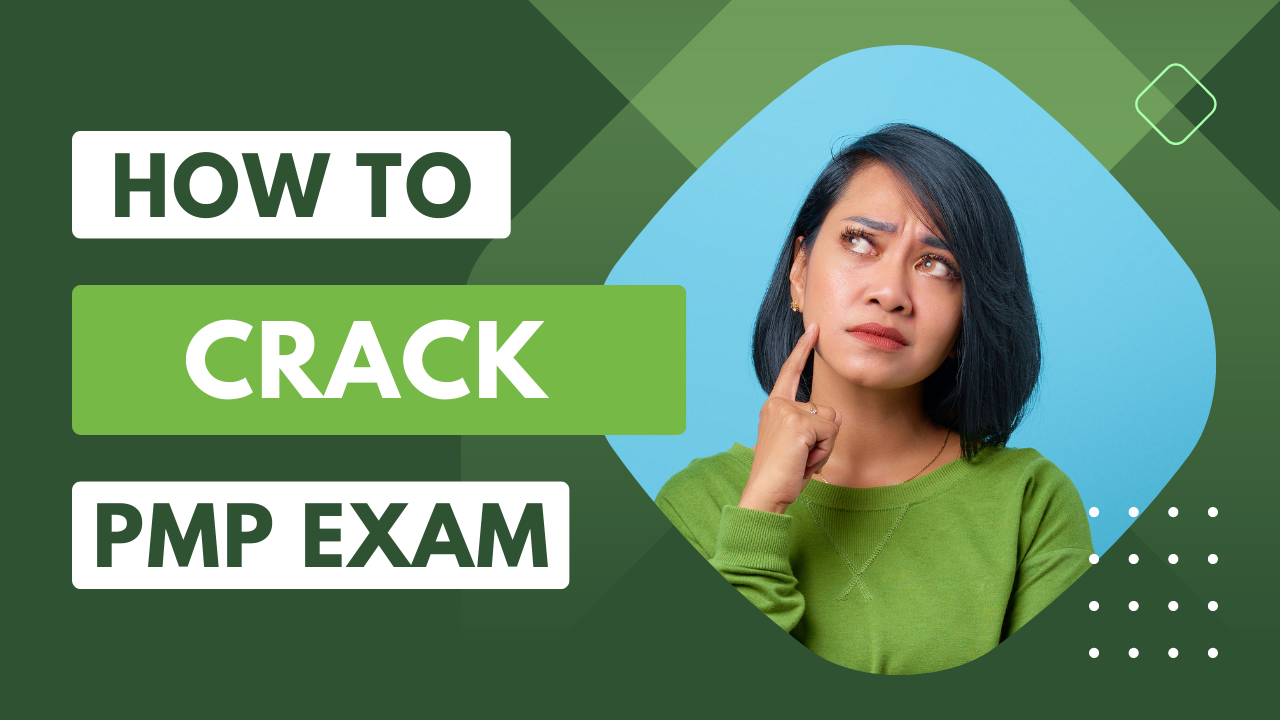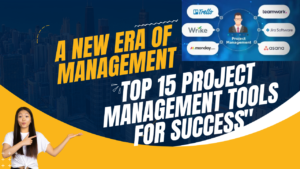Cracking the PMP exam requires diligent preparation, strategic study techniques, and a positive mindset. In this blog, we will provide you with an overview of key strategies and tips to help you succeed. From understanding the exam structure and eligibility requirements to implementing effective study approaches and managing exam-related stress, we will guide you through the process. With the right approach and commitment, you can confidently tackle the PMP exam and earn your certification as a Project Management Professional.
Table of Contents
Introduction
Importance of the PMP Exam:
The Project Management Professional (PMP) exam holds immense significance for professionals in the field of project management. Being a globally recognized certification, it showcases your expertise, validates your skills, and enhances your career prospects. Achieving PMP certification demonstrates your commitment to excellence in project management and opens doors to new opportunities, including higher job prospects, increased earning potential, and the ability to lead complex projects with confidence.
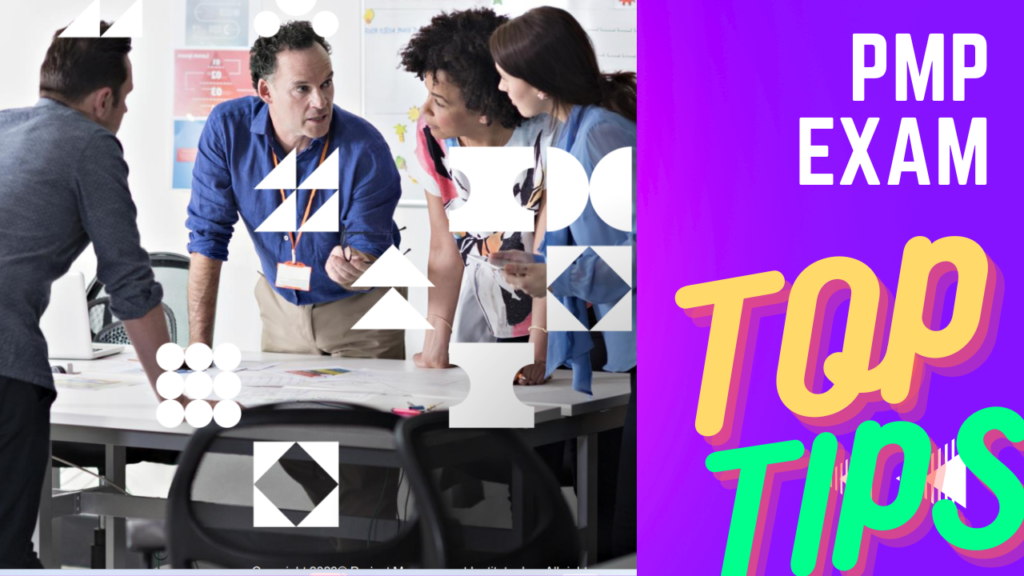
Overview of the Blog:
In this blog about PMP exam, we will guide you on how to crack the PMP exam successfully. We understand that preparing for the exam can be daunting, but with the right approach and strategies, you can overcome the challenges and excel. We will provide you with a comprehensive roadmap, study techniques, and exam tips to help you navigate the exam confidently. Whether you’re just starting your PMP journey or looking for ways to enhance your exam preparation, this blog will equip you with the knowledge and insights you need to maximize your chances of success.
Understanding the PMP Exam
Overview of the Exam Structure and Format:
The PMP exam consists of 200 multiple-choice questions that assess your knowledge and application of project management concepts, processes, and best practices. It covers a wide range of domains, including project initiation, planning, execution, monitoring and controlling, and project closing. Understanding the exam structure and format is essential for effective preparation, as it helps you allocate your study time and focus on the key areas that carry more weightage in the exam.
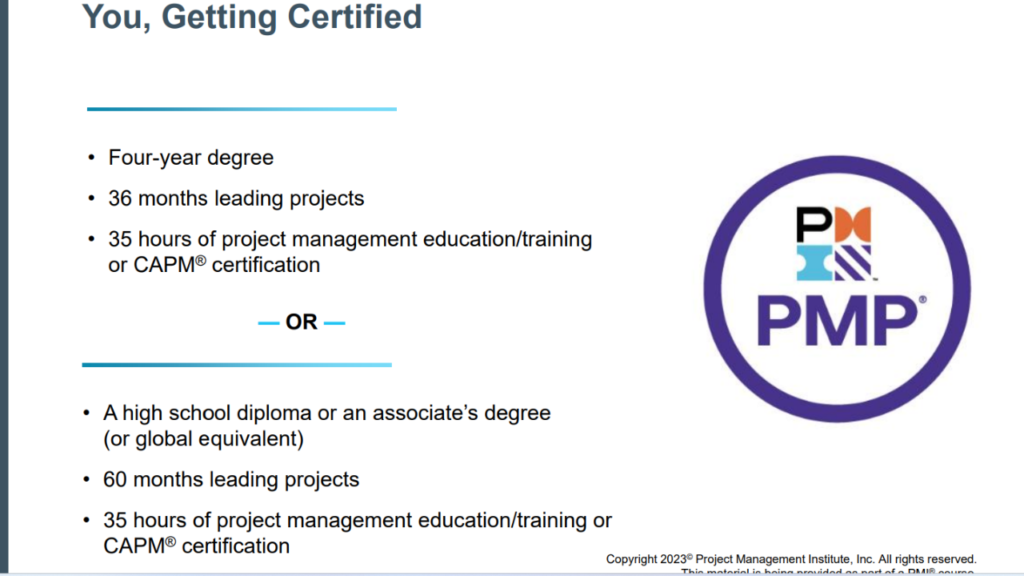
Eligibility Requirements:
Before diving into PMP exam preparation, it’s crucial to ensure that you meet the eligibility requirements set by the Project Management Institute (PMI). To be eligible, you must have a secondary degree (high school diploma, associate degree, or global equivalent) and a minimum of 5 years (or 60 months) of project management experience, along with a minimum of 35 hours of project management education. Alternatively, if you have a four-year degree (bachelor’s degree or global equivalent), the project management experience requirement is reduced to 3 years (or 36 months). Familiarizing yourself with the eligibility criteria is the first step towards PMP exam success.
Preparing for the Exam
Creating a Study Plan:
A well-structured study plan is key to staying organized and focused during your PMP exam preparation. Start by assessing your current knowledge and identifying the areas that require more attention. Break down the syllabus into manageable sections and allocate specific study time for each. Consider your personal schedule, work commitments, and other responsibilities when creating your study plan to ensure a balanced approach. A study plan will not only help you cover all the necessary topics but also provide a clear roadmap to track your progress and make any necessary adjustments along the way.
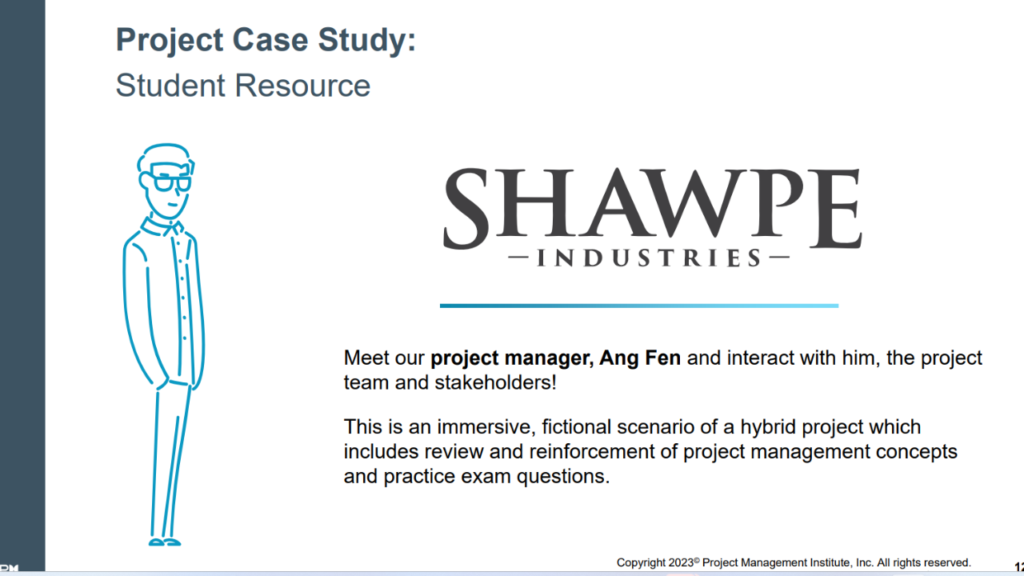
Gathering Study Materials and Resources:
Having the right study materials and resources is essential for effective PMP exam preparation. Start with the PMBOK Guide (Project Management Body of Knowledge), which serves as the primary reference for the exam. Supplement it with other study guides, books, and online resources specifically designed for PMP exam preparation. Utilize practice exams and sample questions to familiarize yourself with the exam format and assess your knowledge. Consider joining study groups or online forums to connect with fellow PMP aspirants and benefit from shared insights and experiences. By gathering a comprehensive set of study materials and resources, you can ensure a well-rounded and thorough preparation for the exam.
Understanding the PMBOK Guide:
The PMBOK Guide is a foundational resource for the PMP exam, providing essential knowledge and principles of project management. Take the time to thoroughly understand the concepts and processes outlined in the guide. Each knowledge area and process group plays a crucial role in project management, and being well-versed in them is vital for success in the exam. Pay close attention to the interrelationships between knowledge areas and how they contribute to project success. As you study, make notes, highlight key points, and create summary sheets to aid in your understanding and retention of the material.
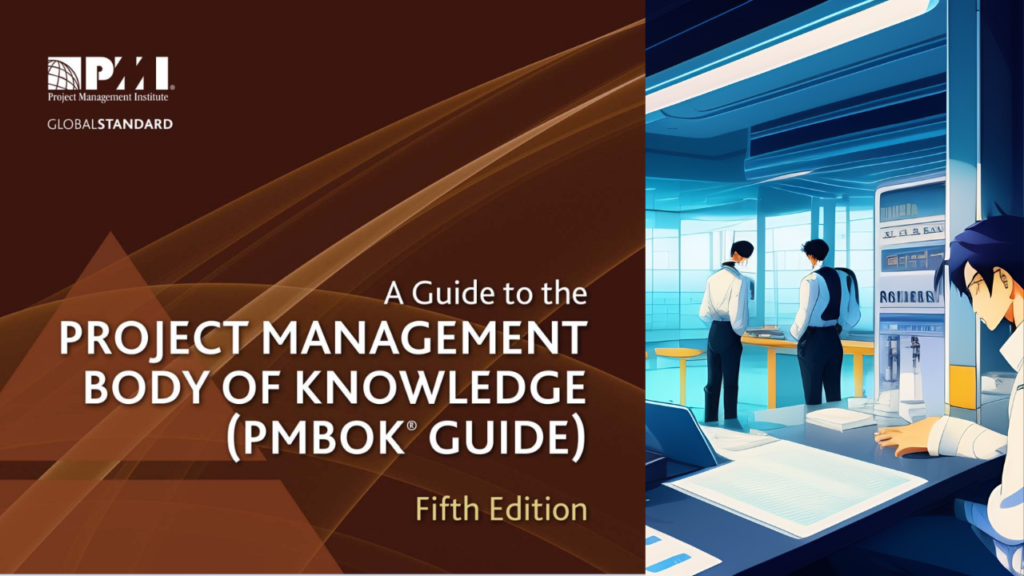
Exploring Additional Study Materials and Practice Questions:
While the PMBOK Guide is a significant resource, exploring additional study materials can enhance your understanding and retention of the exam content. Look for reputable study guides and resources that provide comprehensive explanations, examples, and practical insights into project management concepts. Practice questions are also invaluable in familiarizing yourself with the exam format and testing your knowledge. Solve practice questions from various sources to expose yourself to different question types and scenarios. Review the answers, understand the rationale behind them, and learn from any mistakes you make. Practicing with real-world scenarios will help you become more comfortable and confident in applying your project management knowledge during the exam.
Key Tips and Strategies for Exam Success
Familiarizing Yourself with the Exam Content Outline:
The PMP exam content outline serves as a roadmap for your study efforts. It outlines the key knowledge areas, tasks, and skills that are essential for project management professionals. Carefully review the content outline and ensure you have a solid understanding of each domain and its associated subtopics. This will help you identify areas where you need to focus more attention and allocate your study time accordingly. By aligning your preparation with the exam content outline, you can ensure that you cover all the necessary material and increase your chances of success on the exam.
Applying Exam-
Taking Techniques and Time Management Effectively managing your time during the exam is crucial for answering all the questions within the given timeframe. Familiarize yourself with exam-taking techniques, such as answering easy questions first, marking difficult ones for later review, and pacing yourself throughout the exam. Practice these techniques during your study sessions and mock exams to build your confidence and refine your time management skills. Remember to allocate sufficient time for reviewing your answers before submitting the exam. Developing effective time management strategies will help you maximize your performance and increase your chances of scoring well on the exam.
Practicing with Mock Exams
Mock exams are a valuable tool for assessing your readiness and identifying areas that require further improvement. Set aside dedicated time to take full-length mock exams under exam-like conditions. Use reputable PMP mock exams that simulate the actual exam format and difficulty level. Analyze your performance, review the explanations for incorrect answers, and identify any knowledge gaps or weak areas. Incorporate your findings into your study plan to address these areas before the actual exam. Regularly practicing with mock exams will not only improve your familiarity with the exam format but also boost your confidence and readiness for the real exam.
Identifying and Focusing on Weak Areas:
Throughout your PMP exam preparation, you may discover certain areas where you feel less confident or have a limited understanding. It is crucial to identify these weak areas early on and dedicate extra time and effort to strengthen your knowledge and skills in those areas. Review the corresponding study materials, seek clarification from experts or mentors, and practice with targeted questions to improve your understanding. By addressing your weak areas proactively, you can enhance your overall readiness and increase your chances of performing well in those specific domains during the exam.
Seeking Support and Joining Study Groups:
Studying for the PMP exam can sometimes feel overwhelming, but you don’t have to go through it alone. Seek support from peers, colleagues, or professionals who have already passed the exam. Joining study groups or online forums allows you to connect with others who are also preparing for the PMP exam. Engage in discussions, share resources, and learn from their experiences. Collaborating with others can provide valuable insights, motivation, and a sense of community. Additionally, consider reaching out to mentors or coaches who can provide guidance and support throughout your PMP journey. Their expertise and encouragement can make a significant difference in your exam preparation.
Recommended Study Approaches
Understanding Different Learning Styles:
Every individual has a unique learning style, and understanding yours can greatly enhance your study approach. Some people prefer visual learning, while others excel in auditory or kinesthetic learning. Identify the learning style that suits you best and tailor your study methods accordingly. Incorporate visual aids, diagrams, videos, or audio resources to support your learning style and increase comprehension and retention of information.
Selecting the Right Study Techniques for You:
Explore various study techniques and identify the ones that work best for you. It could be creating mind maps, summarizing concepts in your own words, teaching others, or participating in group discussions. Experiment with different approaches and strategies to find the ones that resonate with your learning style and maximize your understanding and retention of the exam material.
Balancing Self-Study and External Resources
While self-study is crucial, leveraging external resources can provide diverse perspectives and reinforce your understanding. Consider enrolling in reputable online courses, attending workshops, or seeking guidance from experienced trainers. These resources can offer structured content, expert insights, and practical examples to supplement your self-study efforts. Strike a balance between self-study and external resources to create a well-rounded and comprehensive learning experience.
Leveraging Online Courses and Training Programs:
Online courses and training programs specifically designed for the PMP exam can be highly beneficial. These courses provide comprehensive coverage of exam topics, offer interactive learning experiences, and often include practice exams and quizzes to assess your progress. Look for reputable online platforms or training providers that align with your learning style and preferences. By enrolling in such programs, you can gain a deeper understanding of the exam content and receive guidance from experienced instructors.
Utilizing Exam Preparation Books and Resources:
Exam preparation books tailored for the PMP exam can be valuable resources for comprehensive coverage of the exam content. Look for reputable authors and publishers that provide well-structured materials, practice questions, and explanations. These books often include tips, strategies, and case studies that help reinforce your understanding and application of project management concepts. By utilizing a variety of exam preparation books and resources, you can benefit from different perspectives and approaches, expanding your knowledge base and preparing yourself thoroughly for the exam.
Practicing with Exam Simulators and Practice:
Questions Exam simulators and practice questions are invaluable resources for familiarizing yourself with the format, style, and difficulty level of the actual PMP exam. Look for reputable sources that offer a wide range of practice questions covering all the exam domains. Set aside dedicated time to practice with these questions, simulating the exam environment as closely as possible. Analyze your performance, review the explanations for correct and incorrect answers, and identify any patterns or areas that require further attention. Regular practice with exam simulators and practice questions will not only help you gauge your readiness but also improve your speed, accuracy, and confidence in answering exam-related questions.
Utilizing Flashcards and Mnemonics:
Flashcards and mnemonics are effective tools for reinforcing key concepts and memorizing important information. Create your own flashcards or utilize pre-made ones available online. Focus on key definitions, formulas, processes, and project management terminology. Mnemonics can help you remember complex information by creating associations or patterns. Develop mnemonic devices or acronyms to aid in memorization. Use flashcards and mnemonics during your study sessions and review them regularly to solidify your knowledge and recall important details during the exam.
Applying Practical Experience:
If you have prior project management experience, leverage that experience to relate the exam concepts to real-life scenarios. Reflect on your professional projects and consider how the concepts covered in the exam apply to those projects. Draw upon your practical experience to understand the practical implications of project management principles, tools, and techniques. This practical perspective will not only enhance your understanding but also help you answer situational questions during the exam more effectively.
Engaging in Continuous Learning and Reflection:
PMP certification is not just about passing the exam; it’s about continuous learning and professional growth. Embrace a mindset of lifelong learning and commit to ongoing professional development in the field of project management. Even after passing the exam, stay updated with industry trends, best practices, and emerging methodologies. Engage in networking events, attend conferences, or join professional project management associations to expand your knowledge and stay connected with the project management community. Reflect on your learning journey, celebrate your achievements, and embrace opportunities for growth and advancement.
By adopting these recommended study approaches, you can enhance your PMP exam preparation, build a solid foundation of project management knowledge, and increase your chances of success on the exam. Remember to stay focused, be consistent in your study efforts, and maintain a positive mindset throughout your PMP journey. Good luck on your path to becoming a certified PMP!
Overcoming Exam Anxiety and Nervousness
Coping with Exam-Related Stress:
It’s natural to feel some level of stress and anxiety leading up to the PMP exam. To cope with exam-related stress, it’s important to develop effective stress management techniques. Practice relaxation techniques, such as deep breathing exercises, meditation, or engaging in physical activities like yoga or exercise. Find what works best for you to calm your mind and reduce stress levels. Additionally, establish a healthy study-life balance by taking breaks, getting enough sleep, and maintaining a healthy lifestyle to manage stress effectively.
Developing Confidence and Positive Mindset:
Building confidence is crucial for exam success. Remind yourself of your knowledge, skills, and the efforts you’ve put into your preparation. Visualize yourself succeeding in the exam and achieving your goal of becoming a certified PMP. Focus on your strengths and past achievements to boost your self-assurance. Surround yourself with positive and supportive individuals who can uplift your spirits and provide encouragement. By fostering a positive mindset and believing in your abilities, you can approach the exam with confidence and perform at your best.
Practicing Relaxation Techniques and Self-Care Exam:
preparation can be demanding, but it’s essential to prioritize self-care and relaxation. Take regular breaks during study sessions to rest and rejuvenate. Engage in activities that bring you joy and help you relax, whether it’s spending time with loved ones, pursuing a hobby, or enjoying nature. Prioritize adequate sleep, maintain a healthy diet, and stay hydrated to support your physical and mental well-being. By taking care of yourself and incorporating relaxation techniques into your routine, you can manage exam-related stress and maintain a balanced approach to your PMP exam preparation.
Final Exam Preparation
Reviewing Key Concepts and Knowledge Areas:
As you approach the final stages of your exam preparation, allocate time to review the key concepts and knowledge areas. Go through your study materials, notes, and flashcards to refresh your memory and reinforce your understanding. Focus on areas that are commonly tested in the exam and ensure you have a strong grasp of the foundational concepts. Reviewing the key concepts will boost your confidence and help solidify your knowledge for the exam.
Revisiting Challenging Topics and Exam Domains:
Identify the topics and domains that you find particularly challenging or that have historically posed difficulties during your study sessions. Dedicate additional time to revisit these areas, seeking clarification and deepening your understanding. Utilize supplemental resources, such as online tutorials, videos, or expert explanations, to gain further insights into complex concepts. By giving extra attention to challenging topics, you can fill knowledge gaps and improve your performance in those areas during the PMP exam.
Taking Final Practice Tests and Assessments:
In the final stages of your PMP Exam preparation, it’s essential to take full-length practice tests and assessments to gauge your readiness. Set aside dedicated time to simulate the exam environment and conditions as closely as possible. Complete the practice tests under timed conditions and without distractions. Analyze your performance, review the answers, and understand the explanations for incorrect answers. Identify any remaining weak areas or knowledge gaps that need attention. By taking final practice tests, you can assess your level of preparedness and build confidence before the actual exam.
Developing a Final Exam Day Strategy
Preparing for the logistics of the PMP exam day is just as important as the content preparation. Determine the location and timing of the exam and plan your travel accordingly, considering factors such as traffic and parking. Familiarize yourself with the exam center’s rules and regulations, including any permitted items and security procedures. Prepare the necessary identification documents and gather all the required materials, such as calculators or reference sheets if allowed. By having a well-thought-out exam day strategy, you can minimize stress and ensure a smooth and focused exam experience.

Managing Exam Day Nerves and Anxiety:
On the day of the exam, it’s natural to feel a certain level of nervousness and anxiety. Implement strategies to manage these emotions and stay focused. Arrive at the exam center with ample time to settle in and acclimate to the environment. Take deep breaths and engage in relaxation techniques to calm your mind. Remind yourself of your preparation, confidence, and capabilities. Trust in your knowledge and skills, and believe in your ability to perform well on the exam. Stay positive, maintain a clear mindset, and approach each question with focus and concentration on the PMP Exam.
Exam Day Tips and Strategies:
As you progress through the exam, remember to read each question carefully and thoroughly. Pay attention to PMP exam and understand what the question is asking. Use the process of elimination to narrow down options and make an informed choice. Manage your time effectively by pacing yourself and allocating sufficient time for each question. If you encounter difficult questions, don’t dwell on them for too long; mark them for review and move on PMP Exam. Utilize the review time at the end to revisit any marked questions and ensure you’ve answered all questions to the best of your ability.
Conclusion
Cracking the PMP exam requires dedicated effort, thorough preparation, and a strategic approach. By understanding the exam structure, fulfilling the eligibility requirements, and creating a well-structured study plan, you can lay the foundation for success. Applying recommended study approaches, practicing with mock exams, and leveraging various resources will enhance your knowledge and confidence. Overcoming exam anxiety, finalizing your preparation, and adopting effective exam day strategies will help you perform at your best. Remember, the journey to becoming a certified PMP is as important as the destination. Embrace the learning process, stay motivated, and remain persistent. With the right mindset and preparation, you can achieve your goal of cracking the PMP exam and embark on a rewarding career in project management. Best of luck on your PMP Exam journey!
